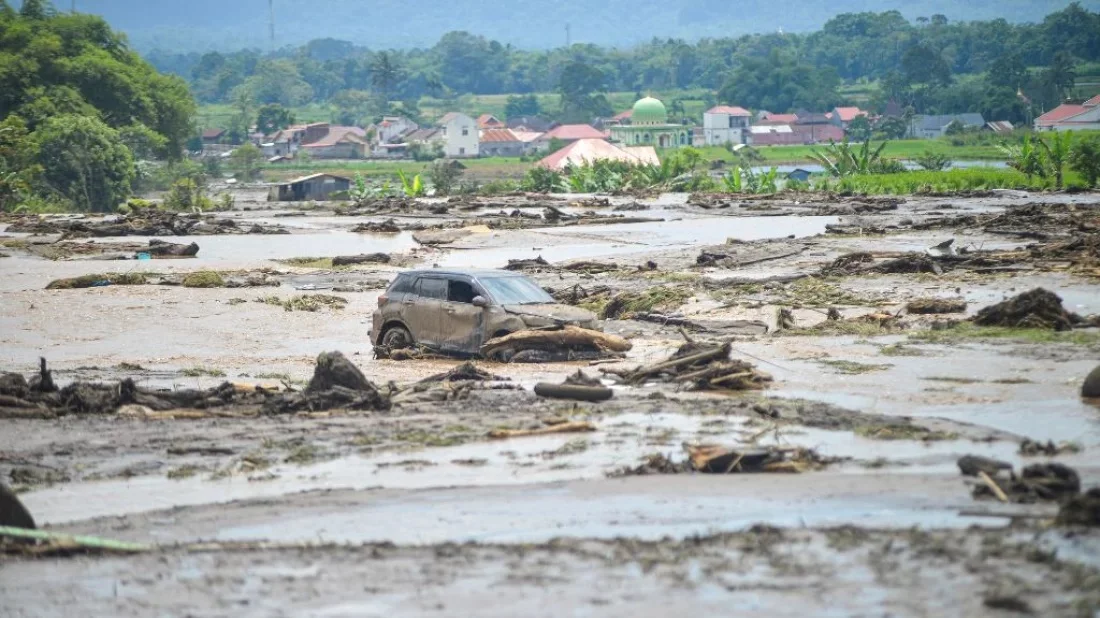Indonesia floods kill 67 as rescuers race to find missing
Share on:

Search and rescue operations involve volunteers, rubber boats, and heavy machinery
Indonesian rescuers raced Wednesday to find dozens of people still unaccounted for after heavy rains caused flash floods and washed volcanic debris into residential areas over the weekend, sweeping away houses and leaving 67 people dead.
Hours of torrential rain on Saturday caused mud and rocks to flow into districts near one of Indonesia's most active volcanos, destroying dozens of houses and damaging roads and mosques.
"Some of the missing ones have been found. According to the police identification, 67 people died," national disaster agency chief Suharyanto said Wednesday in a press conference, raising the death toll from 58.
He added that 20 people remained missing, with rescuers saying many of the retrieved bodies were found in or around rivers after being swept away by the deluge of volcanic material, mud and rain.
The mixture of ash, sand and pebbles carried down a volcano's slopes by rain is known in Indonesia as lahar, or cold lava.
Heavy equipment was deployed to clear debris from the areas worst hit by flooding and cold lava flows, which have affected transport access in six districts, said Suharyanto, who goes by one name.
As the search effort continued, volunteers in rubber boats joined rescuers.
"We have been scouring the areas that cannot be reached with cars. The currents in the river are extreme, so the search is quite dangerous," Ritno Kurniawan, a 38-year-old member of the local rafting community, told AFP.
"We usually found the bodies along the riverbanks, buried under volcanic material or rocks."
Village cut off
More than 3,300 people have been forced to evacuate from affected areas.
Provincial search and rescue official Hendri, who goes by one name, told AFP rain, stacks of logs and large volcanic rocks in rivers were hindering the search.
Eka Putra, mayor of Tanah Datar, told Metro TV one village was still inaccessible by car or motorbike.
To aid the rescue effort, authorities on Wednesday deployed weather modification technology, the term Indonesian officials use for cloud seeding.
In this case, it is being used in a bid to make clouds rain earlier so the precipitation's intensity is weakened by the time it reaches the disaster-struck area.
Indonesia is prone to landslides and floods during the rainy season.
In 2022, about 24,000 people were evacuated and two children were killed in floods on Sumatra Island, with environmental campaigners blaming deforestation caused by logging for worsening the disaster.
Trees act as a natural defence against floods, slowing the rate at which water runs down hills and into rivers.
The district worst-hit by the floods is on the slopes of Mount Marapi, one of Indonesia's most active volcanos.
In December, it erupted and spewed an ash tower 3,000 metres into the sky, taller than the volcano itself.
At least 24 climbers, most of them university students, died in the eruption.
Source: AFP

